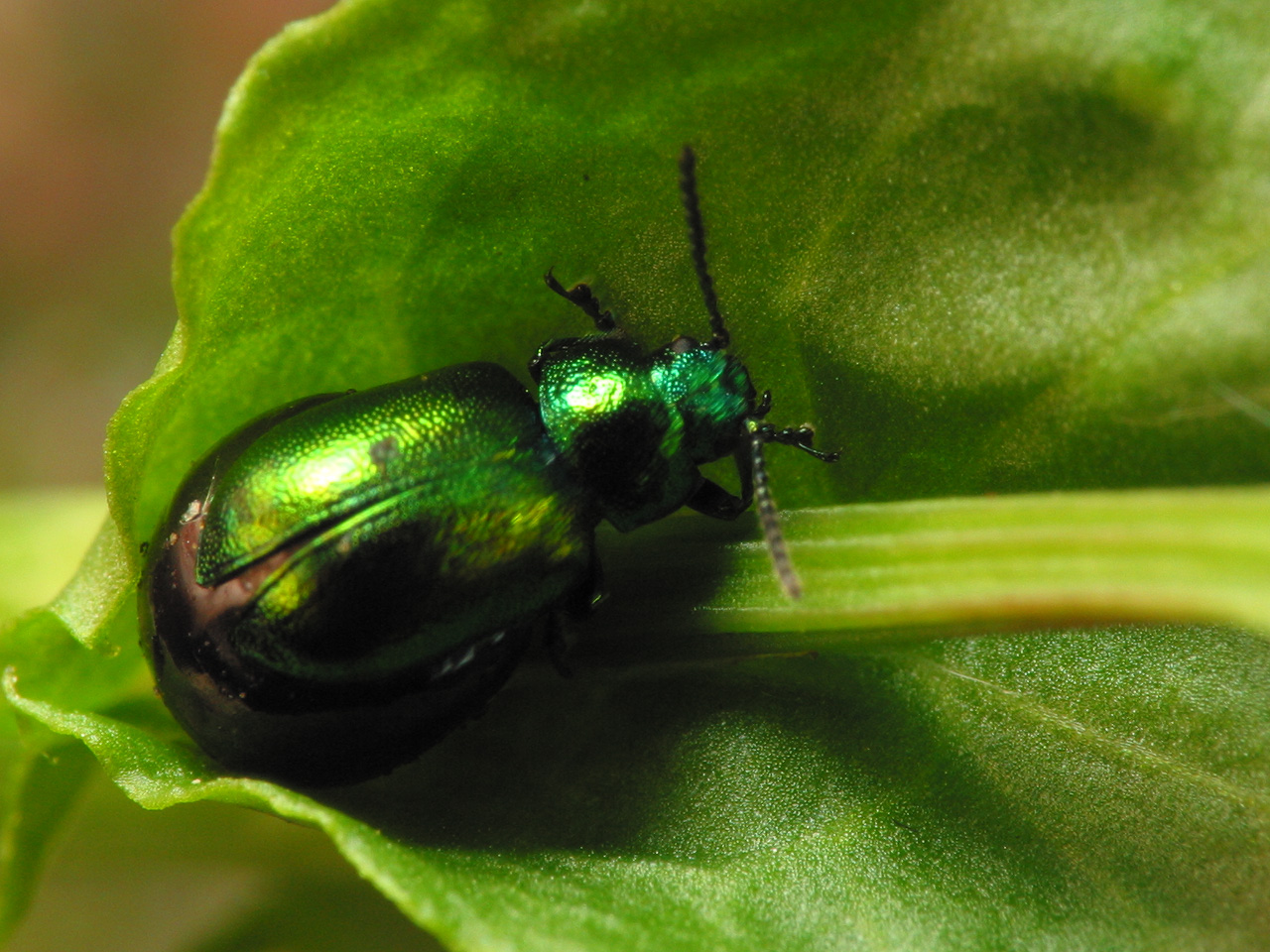
Gastrophysa viridula female · rūgštyninis rūgtinukas ♀
- green dock beetle, green dock leaf beetle, green sorrel beetle
- Grüne Sauerampferkäfer, Ampfer-Blattkäfer
- hiirakuoriainen
- rūgštyninis rūgtinukas, rūgštyninis lapgraužis
- groen zuringhaantje, zuringkever, groene blaasbuik
- kałdunica zielona
It is native to Europe. The length of the green dock beetle varies between sexes, with the males being 4 mm and the females being 7 mm. During the mating season, females have enlarged abdomens. Both sexes are green with a metallic shimmer, which, depending on the light, can be gold green, blue, purple, violet, or red. The legs of this species also shimmer a metallic green, and are strongly built.
The green dock beetle feeds mainly on dock and green sorrel, rarely feeding on other plants in the families Polygonaceae, Brassicaceae, Violaceae, and Boraginaceae. The larvae can only completely develop on Rumex species.
The green dock beetle's breeding season is from March to October. There are 2 to 4 broods per year, with the last brood hibernating as an adult. The female lays over 1,000 eggs, laying them in clusters of 20 to 45 on the underside of the food plant's leaves. The eggs are oval in shape, and are cream to yellow, turning orange prior to hatching. After about 3 to 6 days, the larva hatches from the egg. It varies in color from greenish gray to dark brown. Its body is segmented, and will reach a length of 8 mm. Young larvae will drop to the ground if disturbed while feeding, while older larvae secrete a substance which repels competitors from eating the food plant leaves. After three instars, the larva pupates in a burrow about 2 cm underground. The adult emerges 6 to 9 days later.
Gastrophysa viridula eggs are similar to Gastrophysa polygoni.‥
0 comments
Add a comment